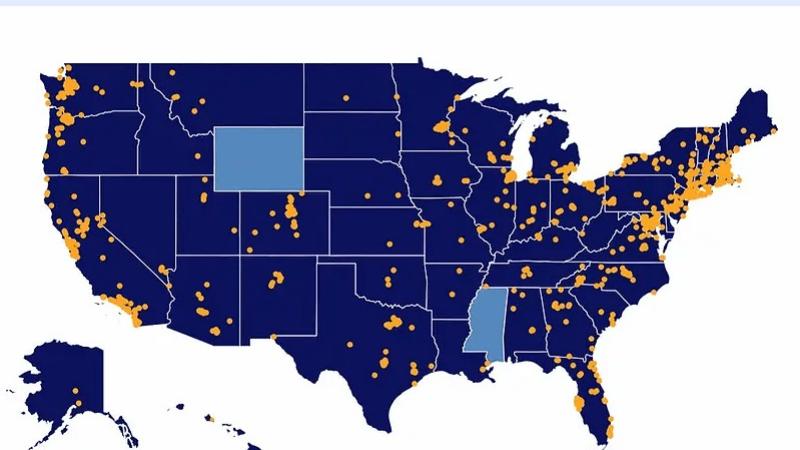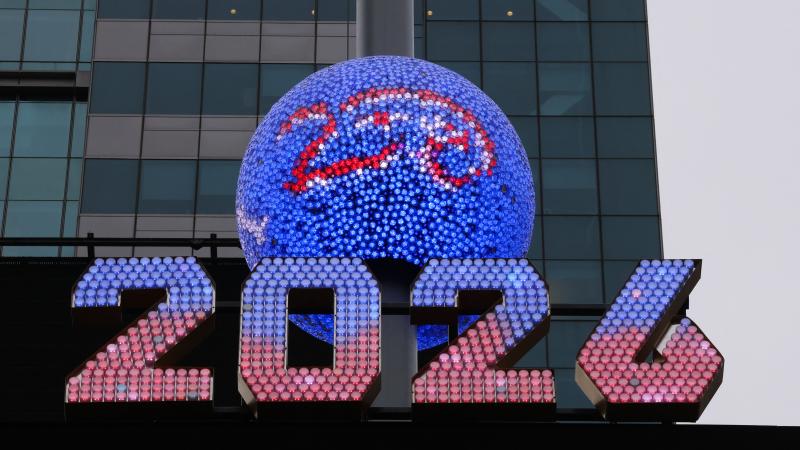Rubio demands no federal funds for Michigan's Ford EV battery plant
Rubio asked the Biden administration not to support Chinese Communist Party efforts by providing tax credits or other funding for the deal.
After Michigan leaders pledged $1 billion in taxpayer subsidies to Ford’s new electric vehicle plant in Marshall, U.S. Florida Republican Senator Marco Rubio is calling for an investigation into the agreement between Ford and its Chinese partner CATL.
Rubio sent a letter to U.S. Secretary of the Treasury Janet Yellen, U.S. Secretary of Energy Jennifer Granholm, and U.S. Secretary of Transportation Pete Buttigieg, calling for an immediate Committee on Foreign Investment in the United States review of the licensing agreement between Ford and CATL.
Rubio asked the Biden administration not to support Chinese Communist Party efforts by providing tax credits or other funding for the deal.
“[I]f Chinese companies like CATL are able to exploit both Chinese and United States incentives for battery and EV technology through clever corporate arrangements, then there is no use in investing federal funds toward industrial development in the first place,” Rubio wrote. “Taxpayer dollars should never be used to support [People’s Republic of China] champions.”
Michigan wasn’t Ford’s first choice for the factory - Virginia was, but Gov. Glenn Youngkin said his administration "felt that the right thing to do was to not recruit Ford as a front for China to America."
Ford aims to use the plant to deliver an annual run rate of 600,000 electric vehicles globally by the end of this year and 2 million globally by the end of 2026. Currently, Michigan has 25,181 EVs registered statewide.
“I am alarmed at Ford’s plan to establish a large, Michigan-based factory, structured as a wholly owned subsidiary that licenses its technology from CATL,” Rubio wrote. “As such, I write to request a Committee on Foreign Investment in the United States (CFIUS) review of the licensing agreement, as well as demand that no federal funds – especially monies or tax credits granted via the Inflation Reduction Act (P.L. 117-169) – go to enrich PRC national champion CATL, or any other Beijing-supported company, directly or indirectly.”
Rubio said that in 2015, Beijing published its Made in China 2025 plan, which identified EVs as a target industry to dominate. He said the CCP has worked to fund and develop EV battery technologies and aims to monopolize critical input processes, such as phosphoric acid production.
Rubio asked for answers to the following questions within 30 days.
To what degree has CATL relied on United States research and development in its own battery production? Does CATL provide equipment, technology, or other services to the PRC government? Does CATL provide equipment, technology, or other services to the People’s Liberation Army, the People’s Armed Police, or any other security body controlled by the CCP? Has CATL acquired any assets through a transaction that is reviewable under the CFIUS? Has CATL ever been implicated in forced labor or child labor? To what degree will CATL have equity in, ownership over, or other forms of control over Ford’s planned subsidiary and the factory?
Gov. Gretchen Whitmer celebrated the deal on Thursday to advance the adoption of EVs by lowering their price and returning the supply chain to Michigan.















